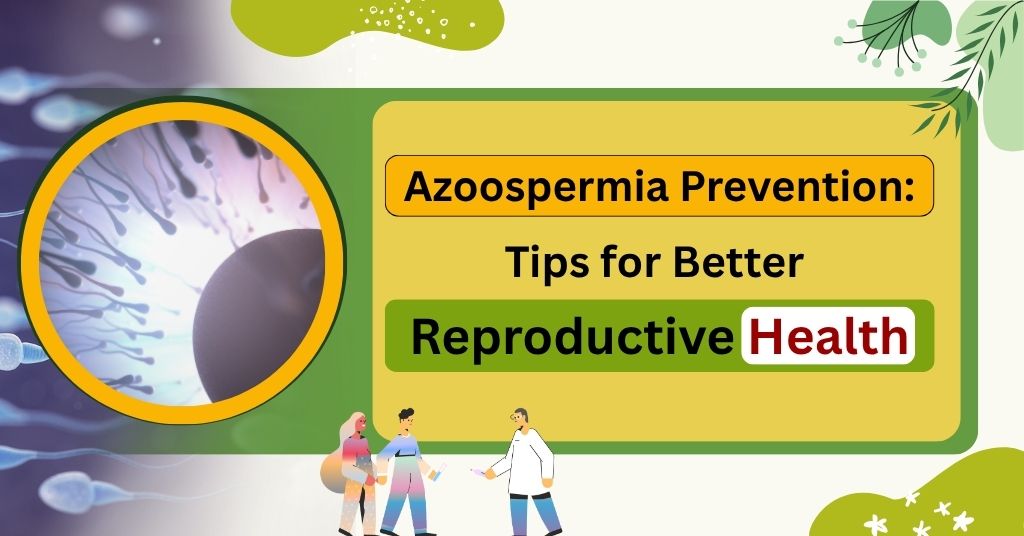Azoospermia is a medical condition where a man’s ejaculate contains zero or no sperm. Male infertility is primarily caused by this condition, which can cause severe emotional and psychological suffering for those who are affected. It can be either “obstructive,” meaning that sperm cannot enter the ejaculate, or “nonobstructive,” meaning that the testis is not producing a sufficient number of sperm.
Sometimes, the precise pathophysiology of azoospermia is unknown. Pre-testicular, testicular, and post-testicular causes of azoospermia can be attributed to various underlying factors, including hormonal imbalances, obstructive or non-obstructive reproductive tract blockages, or specific genetic conditions.
Is azoospermia prevalent? Indeed. Azoospermia affects about 10% of infertile men and 1% of all males. Approximately 500 of 5,000 to 7,500 infertile men will be azoospermic.
Causes of Azoospermia
Azoospermia may develop from a number of underlying conditions, which are categorized according to the location of the issue within the reproductive system. Pre-testicular, testicular, and post-testicular categories are used to generally categorize the causes.
Pre-testicular
- Low production of hormones that stimulate the testicles, known as hypogonadotropic hypogonadism
- Conditions affecting the pituitary or hypothalamus
- Overuse of hormonal drugs, such as anabolic steroids
- Some long-term conditions or serious systemic ailments
Testicular Azoospermia (Non-Obstructive)
- Genetic disorders (such as Y chromosomal microdeletions and Klinefelter syndrome)
- History of mumps orchitis (testicular inflammation caused by a mumps infection)
- Chemotherapy or radiation therapy for cancer
- Torsion or damage to the testicles
- Severe varicocele, or enlarged scrotal veins
- Toxins from the environment or extended exposure to high temperatures
Post-Testicular Azoospermia (Obstructive)
- Congenital vas deferens absence, usually linked to cystic fibrosis
- Infection-related scarring, such as that caused by sexually transmitted diseases
- Previous operations (such as a hernia repair or vasectomy)
- Damage or trauma to the reproductive system
- Obstacles in the ejaculatory duct or reproductive tract cysts
Azoospermia Symptoms
Azoospermia itself often has no obvious symptoms, and many men may be unaware of the condition until they undergo fertility testing. Nevertheless, depending on the underlying reason, there may be related indications and symptoms:
- The main symptom, infertility, is usually recognized when a couple is unable to conceive
- Sexual Dysfunction: Problems like erectile dysfunction or poor libido
- Hormonal imbalances can cause symptoms like gynecomastia (male breast enlargement), decreased face or body hair, and voice changes
- Testicular abnormalities include lumps, edema, or pain
- In situations involving hormonal or genetic factors, delayed puberty may occur
- Additional general symptoms include weight fluctuations, diminished muscular mass, and persistent exhaustion
Tips to Prevent Azoospermia
- Maintain a Healthy Lifestyle: Reproductive health can be improved through regular exercise, a balanced diet, food for azoospermia, azoospermia home remedies, and quitting bad habits like smoking, along with homeopathy medicine for azoospermia
- Avoid Heat Exposure: Excessive heat exposure can negatively impact sperm health. A normal temperature can be maintained by avoiding saunas, hot tubs, and tight clothing
- Reduce Stress: Hormonal balance can be disrupted by high levels of stress, which may indirectly affect sperm production. Think about methods of relaxation like yoga, meditation, or therapy
- Follow the doctor’s advice: Ensure you carefully adhere to all doctor’s instructions, including any dietary or medication recommendations
- Consume Antioxidants: Vitamin C and E are two examples of antioxidants that may help sperm health. Consult your doctor before beginning any supplement regimen
Treatment
Azoospermia can be a challenging medical condition that might interfere with the hopes and family aspirations of the male sufferers. At first, you could find yourself feeling incredibly alone while you take some time to come to terms with this fact. However, with proper medical care and natural remedies for azoospermia, it can be treated effectively for the majority of people. Even though there are a lot of options for increasing sperm count these days, azoospermia homeopathic treatment is thought to be the best and most efficient medical system that offers a mild, safe, and natural solution to male infertility problems.
Bharat Homeopathy
Based on the principles of holistic healing, homeopathy is a natural medical discipline that addresses the underlying cause of azoospermia through highly specialized treatments. The development of azoospermia homeopathic treatment requires a thorough examination of the patient’s particular condition, taking into consideration his symptoms, medical background, and general health. Natural ingredients are used to make the medications, which have no adverse side effects.
With years of experience, our male fertility specialists at Bharat Homeopathy have helped numerous couples achieve their aspirations of becoming parents with homeopathic medicine for azoospermia. Our painless and entirely non-invasive treatment for azoospermia is tailored to each patient’s specific requirements.
Wrapping Up
For men and couples experiencing infertility, the diagnosis of azoospermia can be difficult. Nonetheless, there are azoospermia natural treatment options and hope for pregnancy thanks to advances in medical research. It is essential to get a diagnosis done as soon as possible and to consult a urologist or fertility specialist. In addition to recommending the best course of azoospermia treatment in homeopathy and addressing any other health issues, the specialist can help determine the cause of azoospermia. On the path to motherhood, remember that you can empower yourself by having open discussions with your partner and considering all your alternative options.


